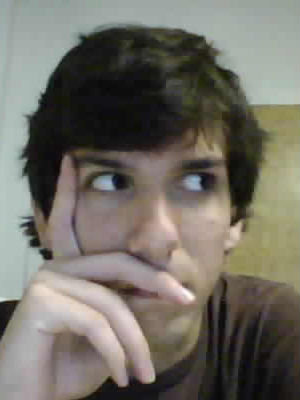Ridley Scott's been around a pretty long time, and he's covered the gamut of genres and settings, but in the last decade or so he became enamored with historical epics, producing Gladiator, Kingdom of Heaven, and Robin Hood. Gladiator was a success, Kingdom of Heaven met a rather mixed reception, and I haven't heard a word about Robin Hood which I'm taking as "no news is bad news." I'd seen Kingdom of Heaven twice before, the theatrical cut uncomfortably in 10th grade World History class, and the director's cut once a few years ago.
It's important to note that Kingdom of Heaven is one of the more famous recent cases of a film being butchered for the theater, and only really appreciable in the extended cut (funnily enough Scott had the same problem with Blade Runner, what's up with that Ridley?). The DC extends the running time from 144 minutes to 190 minutes and inserts entire plots that were cut out from the theatrical. I'm not going to do an in-depth compare and contrast, but I think I can fairly say not to waste your time with the theatrical.
Kingdom of Heaven takes on a segment of history that could be considered controversial even today, the crusades. Specifically, the fall of Jerusalem and its capture by the Muslims. It's a complex subject, and Scott does really well not to glorify or vilify either side of the project. Various characters deliver different outlooks on the conflict and religion itself - you'll find most are reasonable, subtle, and respectful portrayals, with the exception of the Bishop who was a little too goofy for the otherwise stone-serious film ("Let's convert to Islam... repent later!" was when he crossed the line for me).
On a related note, the writing is definitely mixed. Mostly good, but there are some enormous clunkers - especially a few bizarre, out of place, cheesy as all-get-out voiceovers by Bloom during one scene where he reminisces about his dead wife ("How can you be in hell...if you're in my heart?"). Missteps here and there aside, it gets the job done. The acting is also somewhat mixed - it's unfortunate that the only characters that get consistent screentime throughout the film are Orlando Bloom as Balian (a respectable performance, but he can be wooden), and Eva Green as Princess Sibylla (who does well when called upon for performing, but who is mostly relegated to staring forlornly at proceedings).
The rest of the impressive-on-paper cast is largely a series of glorified cameos which are nonetheless some of the best moments of the film - Brendan Gleeson is spectacularly unrecognizable as Raynald de Châtillon: this was my third watch of the film (and I'm a Brendan Gleeson fan) and I still didn't know it was him until the credits rolled. Edward Norton plays a king without ever showing his face, an admirable and thankless task, and Liam Neeson does well as a wise, if short-lived, father figure.
The production is spectacular and the battles epic, as one would expect. The director avoids the pithole of depicting battle after battle - some are classily bypassed without depiction, and those which are shown (especially the stand outside Kerak and the siege of Jerusalem) are tremendously impressive in scope and presentation. Scott does however tend to overwhelm the audience with constant epic music and melodrama, which leads to a sort of jadedness. And there are several other annoying cinematic habits on Scott's part - that tacky as hell "choppy slow motion" he abuses, the cheap "character about to be executed, sword falls CUT AWAY oh no they're dead!! CUT BACK oh no they put the sword NEXT to their head!" fakeout which is used MULTIPLE times, and so on. Despite the greatly increased runtime of the director's cut, the film still feels rushed until it reaches Jerusalem, with many scenes feeling overly curt and abbrieviated, not allowing the film the time it needs to breathe.
Flaws aside, the movie lives up to its epic billing and at the end you're feeling about as weary and defeated as the Christian occupants of Jerusalem. I can't comment on Kingdom of Heaven's historical accuracy, but I'm not a stickler for that kind of thing as long as the broad strokes are correct, and they were here. It's no Lawrence of Arabia (though it seems to subtly homage its predecessor at times), but it's a successful historical epic that leaves you feeling emptied and bitter at the idea of religious conflict. And if you didn't make the connection yourself, Scott helpfully points out that TO THIS DAY PEACE IN THE MIDDLE EAST REMAINS ELUSIVE!!!!
4/5 (previously 5/5)



